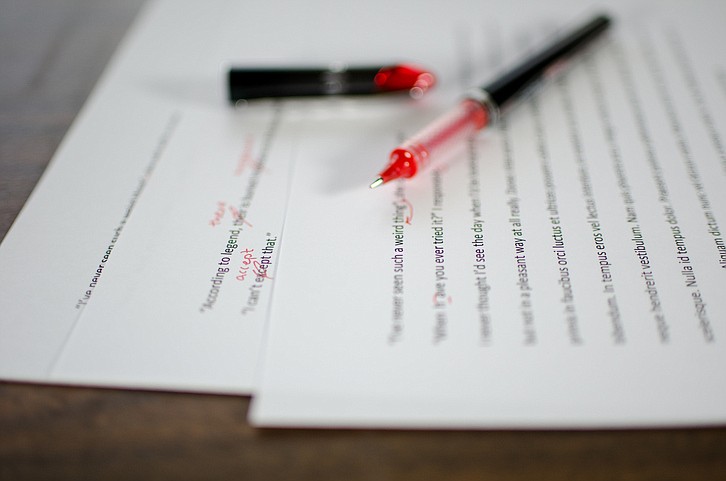I was watching a documentary on University of Alabama football the other night when I was struck by a quote.
Former NBA star Kobe Bryant, the Lost Angeles Lakers great, was giving the defending national champion Alabama team a preseason pep talk. At one point, Bryant told the players: "What I've always found helpful, particularly when the season starts, is to edit your life."
The phrase "edit your life" struck me. At age 60, I've done a lot of editing and a lot of living, but I've never tried to edit my life.
The essence of editing is to make a piece of writing more clear. And I think that is what Bryant was getting at. A perfectionist and workaholic, he was urging the players to edit distractions out of their lives - at least during the football season. Only then would they see their goals more clearly.
In my mind, the "life edit" metaphor is fascinating and suggests a parenting strategy that I am eager to share.
Here are a few tools from the editor's toolkit that I would like for our two sons to learn to apply to everyday life.
-Be brief. Of all the writing virtues, brevity is the most cherished. I once heard a writing coach say that, in the hands of a good editor, long sentences should shrivel like a strips of bacon frying in a cast-iron skillet.
Similarly, thinking small is a good way to edit your life. Experiment with smaller food portions, smaller houses, smaller cars, smaller debts, and you are apt to have smaller problems.
-Don't overuse big words. Editors can instantly smell out word fraud. Vocabulary is a poor substitute for information.
When it comes to editing your life, this translates to: Talk less, listen more.
-Pick action verbs. Verbs give energy to writing. So to "saunter" is better than to "walk," and to "blather" is better than to "say."
Most human lives could use more energy, too. The "life edit" equivalent of action verbs is exercise. Just do it. The physical and mental health benefits are unequivocal. I mean, indisputable. I mean, good.
-Tell stories. The cliche is that every story has a beginning, a middle and an end. Which is, well, blather. A bread stick has a beginning, middle and end, but that doesn't make it a story.
More correctly, a story is made up of a character, a conflict and a resolution.
So, coincidentally, is a human life. Once you start seeing your life as a series of conflicts and resolutions, you have begun to think like an editor. So expect conflicts. Look for resolutions. Then edit your life accordingly.
-Don't bury the lead. In the news business, we are taught to put the most important stuff at the top of a story. Forgetting to do this is called burying the lead, and it's a sure way to have an editor call you out.
We bury the lead in real life when we let trivial matters float to the top of our awareness and we forget the conditional virtues that should always be top of mind: love, honor, duty, perseverance.
-Ask advice from a trusted friend. All good writers seek out peers to give them honest feedback on their work. Far from fishing for compliments, they expect these friends to be brutally honest about the flaws in their work.
Similarly, everyone needs a friend or two who will give them unvarnished advice. Self-esteem is built on honest reflection and hard work, not coddling.
-Draft and rewrite. When the subject is complicated, writers know that rewriting an early draft is the most important part of the process. In fact, the best writing goes through layers and layers of rewriting.
Life, too, is full of rough drafts. Just write, rewrite and repeat until you get it right.
Now, let's all take out our red pens and get to work.
Contact Mark Kennedy at mkennedy@timesfreepress.com or 423-757-6645.
